May 27 stands as one of history’s most eventful days, witnessing the rise and fall of empires, groundbreaking discoveries, and moments that shaped our modern world across centuries of human achievement.
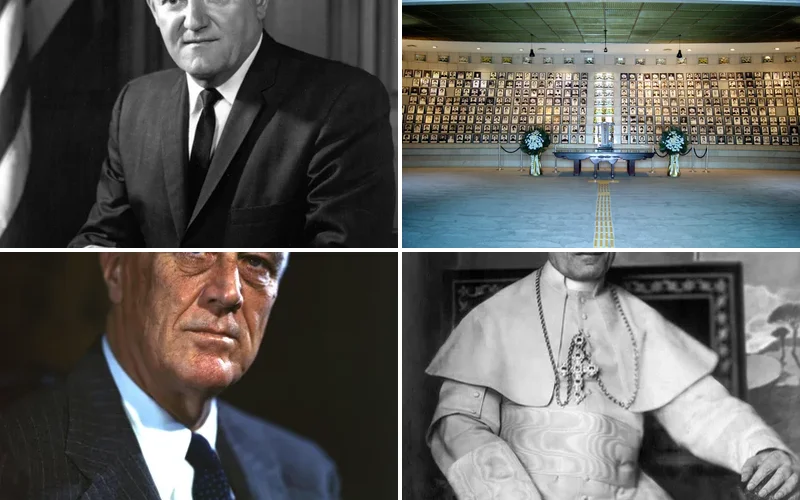
Politics and Government Events on May 27
1933 – New Deal Federal Securities Act Signed
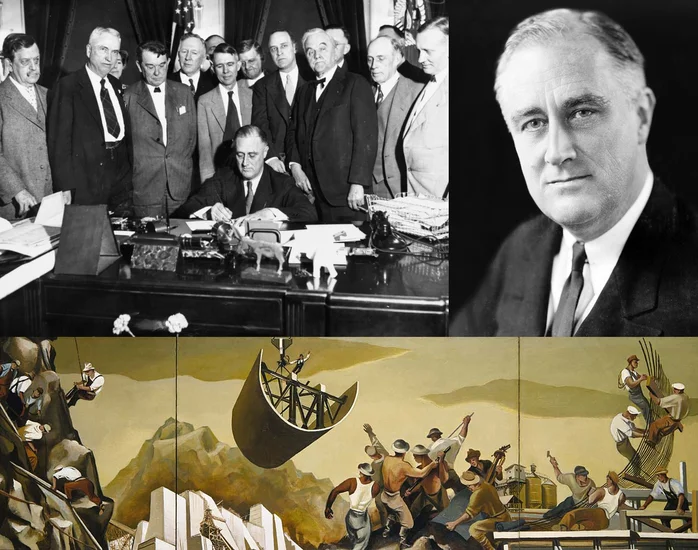
The U.S. Federal Securities Act becomes law, requiring securities registration with the Federal Trade Commission. This landmark legislation transformed American financial markets by establishing unprecedented transparency requirements.
The act emerged from the economic devastation of the Great Depression. Government officials recognized that unregulated securities trading had contributed significantly to the 1929 stock market crash.
1941 – Roosevelt Declares Unlimited National Emergency

President Franklin D. Roosevelt proclaims an “unlimited national emergency” as World War II intensifies globally. This declaration expanded presidential powers and mobilized American resources for the impending conflict.
The proclamation allowed the government to implement wartime measures without formal congressional approval. Roosevelt’s bold action prepared the nation for its inevitable entry into the global war.
1960 – Turkish Military Coup Removes Democratic Government
Military forces in Turkey successfully overthrow President Celâl Bayar and the entire democratic government. The coup leaders claimed they acted to restore order and eliminate corruption from Turkish politics.
The military intervention marked a significant turning point in Turkish political history. Democratic institutions would struggle to regain stability for years following this dramatic power shift.
1967 – Australian Constitutional Referendum Passes
Australians vote overwhelmingly to grant their federal government power to make laws benefiting Indigenous Australians. The referendum also authorizes counting Indigenous peoples in the national census for the first time.
This historic vote represented a crucial step toward racial equality in Australia. The overwhelming support demonstrated changing public attitudes toward Indigenous rights and recognition.
1996 – Yeltsin Negotiates First Chechen Ceasefire
Russian President Boris Yeltsin meets directly with Chechen rebels for the first time, successfully negotiating a ceasefire. This diplomatic breakthrough offered hope for ending the brutal First Chechen War.
The negotiations marked a significant shift from military confrontation to diplomatic engagement. However, the underlying territorial disputes would continue to challenge Russian-Chechen relations for years.
Military and Naval History on May 27
1905 – Battle of Tsushima Begins
The decisive naval battle of the Russo-Japanese War commences in the straits between Korea and Japan. Russian Admiral Zinovy Rozhestvensky leads his Baltic Fleet against Admiral Togo’s Japanese forces.
This confrontation would determine naval supremacy in the Pacific region. The battle’s outcome would shock the world and establish Japan as a major naval power.
1941 – German Battleship Bismarck Sunk
The German battleship Bismarck meets its fate in the North Atlantic, claiming almost 2,100 lives. British naval forces finally locate and destroy the ship after a dramatic chase across the Atlantic Ocean.
The Bismarck’s destruction marked a turning point in the Battle of the Atlantic. This victory demonstrated that even Germany’s most powerful warships could be defeated by coordinated Allied naval operations.
1942 – Operation Anthropoid Wounds Heydrich

Czech resistance fighters fatally wound SS-Obergruppenführer Reinhard Heydrich in Prague during Operation Anthropoid. The assassination attempt targets one of Nazi Germany’s most ruthless leaders, known as “The Butcher of Prague.”
Heydrich would die from his injuries eight days later. This bold resistance action would trigger massive German retaliation against Czech civilians and resistance networks.
1940 – Le Paradis Massacre Occurs
German troops execute 99 surrendering soldiers from the Royal Norfolk Regiment in the Le Paradis massacre. Only two British soldiers survive this war crime during the German advance through France.
The massacre violated international laws governing prisoner treatment. This atrocity exemplified the brutal nature of warfare during Germany’s rapid conquest of Western Europe.
Science and Discovery Milestones on May 27
1919 – First Transatlantic Flight Completed
The NC-4 aircraft successfully arrives in Lisbon, completing the first transatlantic flight in aviation history. This groundbreaking achievement opens new possibilities for international travel and communication.
The flight demonstrated that oceanic distances could be conquered by aircraft technology. Aviation pioneers proved that the Atlantic Ocean no longer represented an insurmountable barrier to human flight.
1958 – McDonnell Douglas F-4 Phantom II First Flight
The F-4 Phantom II makes its maiden flight, beginning the career of one of aviation’s most successful military aircraft. This versatile fighter-bomber would serve multiple air forces worldwide for decades.
The Phantom’s innovative design incorporated cutting-edge radar and missile systems. Its development marked a significant advancement in supersonic fighter aircraft technology.
1999 – Space Shuttle Discovery Docks with International Space Station
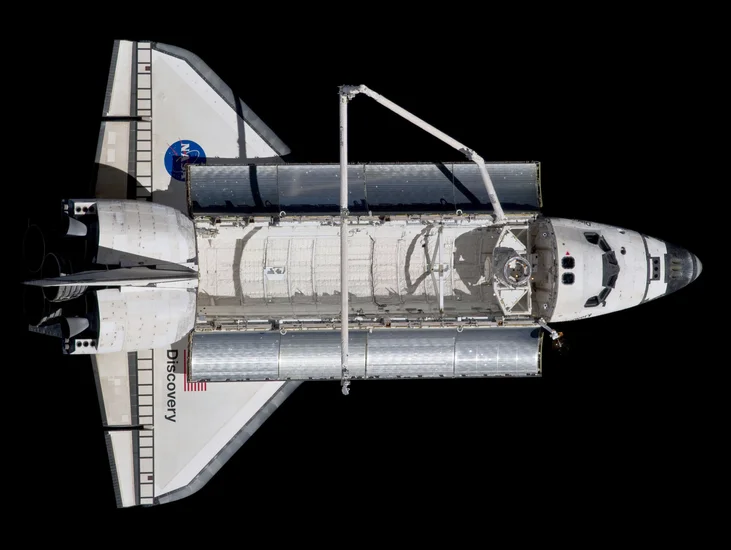
Space Shuttle Discovery launches on STS-96, the first shuttle mission to dock with the International Space Station. This historic mission delivers crucial supplies and equipment to the orbiting laboratory.
The successful docking represents a major milestone in international space cooperation. Astronauts from multiple nations work together to advance human presence in space.
Cultural and Arts Events on May 27
1913 – Stravinsky’s “The Rite of Spring” Premieres
Igor Stravinsky’s revolutionary ballet “The Rite of Spring” premieres at the Théâtre des Champs-Élysées in Paris. The avant-garde composition and choreography provoke riots among the audience.
The premiere becomes one of classical music’s most infamous events. Stravinsky’s bold harmonic innovations would fundamentally transform 20th-century musical composition.
1937 – Golden Gate Bridge Opens
The Golden Gate Bridge opens to pedestrian traffic, creating a vital link between San Francisco and Marin County. This engineering marvel immediately becomes an iconic symbol of American achievement.
The bridge’s Art Deco design and distinctive International Orange color make it instantly recognizable worldwide. Its construction required innovative techniques to span the treacherous Golden Gate strait.
1950 – Linnanmäki Amusement Park Opens
Helsinki’s Linnanmäki amusement park opens for the first time, providing entertainment for Finnish families. The park introduces modern carnival attractions and rides to Northern European audiences.
This opening marked Finland’s entry into the international amusement park industry. The park would become a beloved destination for generations of Finnish children and families.
Religious and Social Events on May 27
1917 – Pope Benedict XV Promulgates Canon Law Code
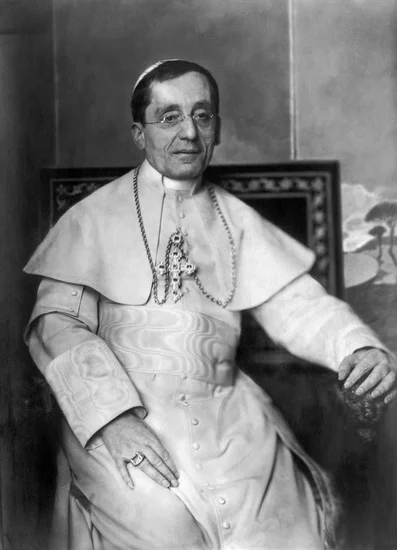
Pope Benedict XV promulgates the 1917 Code of Canon Law, the first comprehensive codification in Catholic Church legal history. This monumental work standardizes Catholic legal practices worldwide.
The code represents years of scholarly research and theological consultation. Its implementation unified Catholic legal procedures across all dioceses and religious communities globally.
1971 – Bagbati Massacre Occurs
Pakistani forces massacre over 200 civilians, mostly Bengali Hindus, in the Bagbati massacre during the Bangladesh Liberation War. This atrocity exemplifies the systematic violence targeting Bengali civilians.
The massacre forms part of the broader genocide against Bengali populations. International observers document these crimes as evidence of Pakistani military brutality during the independence conflict.
1984 – Gwangju Massacre Ends
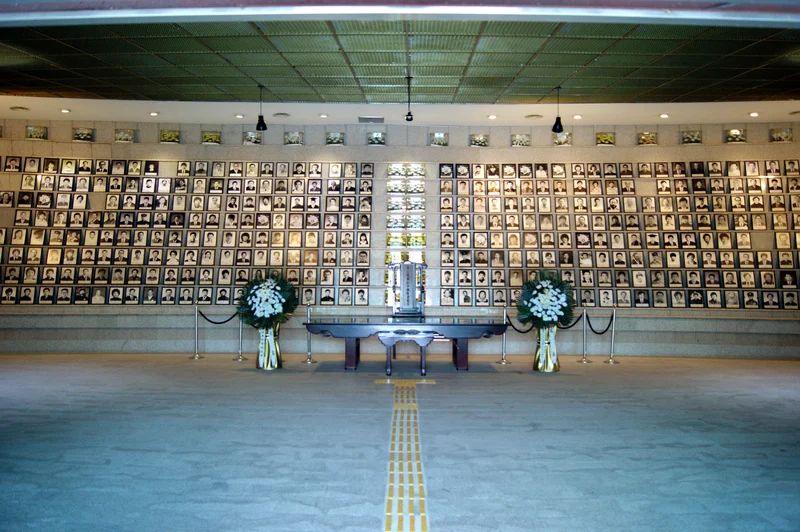
South Korean airborne and army troops retake Gwangju from civil militias, killing at least 207 protesters. This violent suppression ends the Gwangju Uprising against military rule.
The massacre galvanizes South Korean democratic movements for years to come. The government’s brutal response demonstrates the lengths military rulers will take to maintain power.
Business and Economic Events on May 27
1927 – Ford Ceases Model T Production
The Ford Motor Company ceases manufacturing the legendary Model T automobile, ending an era in automotive history. Ford begins retooling plants to produce the new Model A design.
The Model T had revolutionized personal transportation and manufacturing processes worldwide. Its discontinuation marked the end of the first mass-produced automobile era.
1930 – Chrysler Building Opens
The 1,046-foot Chrysler Building in New York City opens to the public as the world’s tallest man-made structure. This Art Deco masterpiece represents the pinnacle of American architectural achievement.
The building’s distinctive design and metallic crown create an instantly recognizable Manhattan landmark. Its construction demonstrated American engineering capabilities during the Great Depression’s early years.
1935 – Supreme Court Strikes Down NIRA
The Supreme Court declares the National Industrial Recovery Act unconstitutional in A.L.A. Schechter Poultry Corp. v. United States. This landmark decision limits New Deal government intervention in business.
The ruling forces President Roosevelt to reconsider his economic recovery strategies. The Court’s decision demonstrates the constitutional limits on federal regulatory power during economic crises.
Transportation and Infrastructure on May 27
1984 – Danube-Black Sea Canal Opens
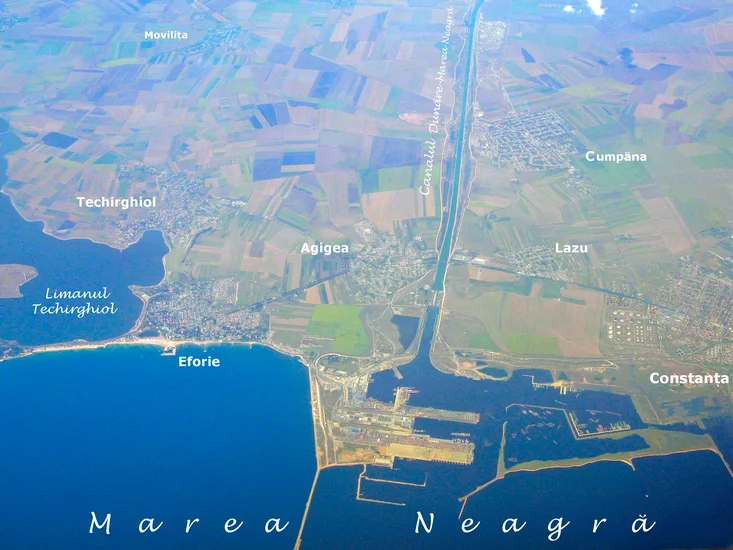
The Danube-Black Sea Canal opens in Romania after construction spanning from the 1950s. Nicolae Ceaușescu and his wife Elena attend the opening ceremony for this massive infrastructure project.
The canal represents one of Eastern Europe’s most ambitious engineering undertakings. Its completion provides a crucial shipping route connecting the Danube River system to the Black Sea.
1967 – USS John F. Kennedy Launched
The U.S. Navy aircraft carrier USS John F. Kennedy is launched by Jacqueline Kennedy and her daughter Caroline. This supercarrier represents American naval power projection capabilities during the Cold War.
The ship’s launch honors the assassinated president’s memory through naval service. The carrier would serve as a cornerstone of American naval operations for decades.
1998 – Oklahoma City Bombing Accomplice Sentenced

Michael Fortier receives a 12-year prison sentence and $200,000 fine for failing to warn authorities about the Oklahoma City bombing plot. His cooperation with investigators helped convict the primary conspirators.
Fortier’s sentencing closes another chapter in America’s deadliest domestic terrorist attack. The case demonstrates the legal consequences of failing to report known terrorist activities.
Sports and Recreation on May 27
1971 – Dahlerau Train Disaster
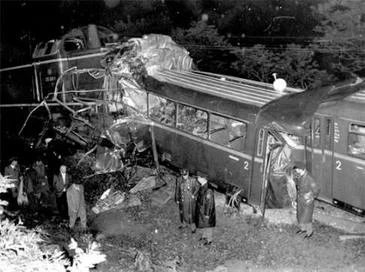
The Dahlerau train disaster near Wuppertal becomes West Germany’s worst railway accident, killing 46 people and injuring 25. The tragedy highlights the dangers of high-speed rail transportation.
The accident prompts extensive safety reviews of German railway operations. Transportation authorities implement new safety protocols to prevent similar disasters in the future.
1997 – Central Texas Tornado Outbreak

The 1997 Central Texas tornado outbreak spawns multiple tornadoes across the region, including an F5 tornado that kills 27 people in Jarrell. This devastating weather event demonstrates nature’s destructive power.
The Jarrell tornado completely destroys entire neighborhoods with unprecedented violence. Meteorologists study this outbreak to improve tornado prediction and warning systems.
1962 – Centralia Mine Fire Ignites
The Centralia mine fire ignites in the town’s landfill above an underground coal mine. This underground fire would burn for decades, eventually forcing the entire town’s evacuation.
The fire demonstrates the long-term environmental consequences of improper waste disposal. Centralia becomes a cautionary tale about the intersection of mining operations and municipal waste management.
Notable Births on May 27
1907 – Rachel Carson Born

American biologist and environmentalist Rachel Carson enters the world, destined to become one of the most influential environmental writers. Her childhood fascination with nature shapes her future scientific career.
Carson would later author “Silent Spring,” the groundbreaking book that launched the modern environmental movement. Her work exposed the dangers of pesticide use and transformed public awareness of ecological issues.
1911 – Hubert Humphrey Born

Future Vice President Hubert Humphrey is born in Wallace, South Dakota. His early experiences in small-town America influence his lifelong commitment to progressive politics and social justice.
Humphrey would serve as the 38th Vice President under Lyndon Johnson. His passionate advocacy for civil rights and social programs earned him the nickname “The Happy Warrior.”
1923 – Henry Kissinger Born
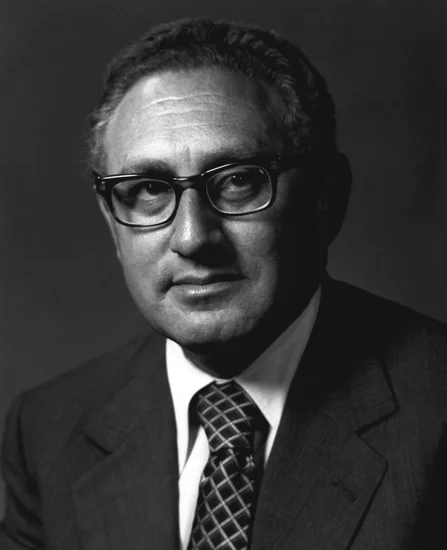
Henry Kissinger enters the world in Fürth, Germany, later becoming one of America’s most influential diplomats. His family’s escape from Nazi Germany profoundly shapes his worldview and political philosophy.
Kissinger would serve as Secretary of State and National Security Advisor, earning the Nobel Peace Prize. His realpolitik approach to diplomacy significantly influenced American foreign policy during the Cold War.
1911 – Vincent Price Born

Vincent Price is born in St. Louis, Missouri, destined to become the master of horror cinema. His cultured background and theatrical training prepare him for a unique career in entertainment.
Price would become synonymous with classic horror films and sophisticated villainy. His distinctive voice and dramatic presence made him one of cinema’s most recognizable character actors.
1975 – Jamie Oliver Born

British chef Jamie Oliver is born in Clavering, Essex, beginning a life dedicated to culinary excellence and food education. His early exposure to his family’s pub business sparks his passion for cooking.
Oliver would revolutionize British cooking shows with his energetic personality and accessibility. His campaigns for healthy school meals and cooking education impact millions of families worldwide.
Notable Deaths on May 27
1964 – Jawaharlal Nehru Dies
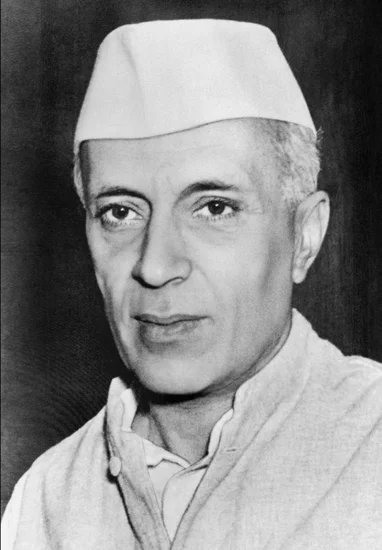
India’s first Prime Minister Jawaharlal Nehru passes away, ending an era of post-independence leadership. His death marks the conclusion of the independence generation’s political dominance.
Nehru’s passing creates a significant leadership vacuum in Indian politics. His daughter Indira Gandhi would later continue the family’s political dynasty as Prime Minister.
1910 – Robert Koch Dies
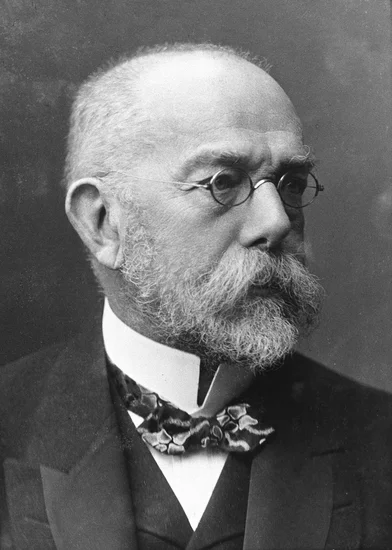
German physician and microbiologist Robert Koch dies, leaving behind revolutionary contributions to medical science. His groundbreaking work in bacteriology earned him the Nobel Prize in Physiology or Medicine.
Koch’s discoveries fundamentally changed understanding of infectious diseases. His postulates for proving bacterial causation of disease remain fundamental principles in medical microbiology.
2011 – Gil Scott-Heron Dies
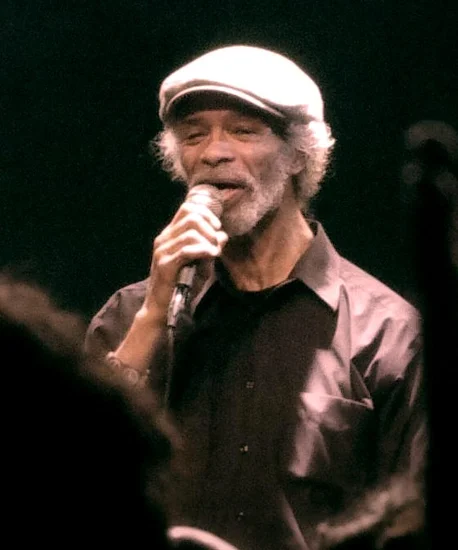
Influential musician and poet Gil Scott-Heron passes away, ending a career that bridged music and social activism. His spoken-word performances and revolutionary lyrics influenced generations of artists.
Scott-Heron’s “The Revolution Will Not Be Televised” became an anthem of social consciousness. His work laid important groundwork for the development of hip-hop music and culture.
2017 – Gregg Allman Dies

Gregg Allman, founding member of the Allman Brothers Band, passes away after a legendary career in Southern rock. His distinctive voice and keyboard skills defined a generation of American music.
Allman’s death marked the end of an era in Southern rock music. His band’s improvisation and blues-rock fusion influenced countless musicians and established a uniquely American musical genre.
Holidays and Observances on May 27
Armed Forces Day (Nicaragua)
Nicaragua celebrates Armed Forces Day to honor the country’s military personnel and their service to the nation. This observance recognizes the role of the armed forces in maintaining national security and sovereignty.
The holiday includes military parades and ceremonies throughout the country. Citizens express gratitude for the sacrifices made by military personnel in protecting Nicaragua’s independence and democratic institutions.
Children’s Day (Nigeria)
Nigeria observes Children’s Day to celebrate the rights and welfare of children throughout the country. This special day focuses attention on children’s education, health, and protection from exploitation.
Schools and communities organize special events and activities for children. The observance emphasizes Nigeria’s commitment to nurturing the next generation and ensuring their bright future.
Mother’s Day (Bolivia)

Bolivia celebrates Mother’s Day to honor mothers and maternal figures throughout the country. This cherished holiday brings families together to express gratitude for mothers’ love and sacrifice.
The celebration includes special meals, gifts, and family gatherings. Bolivian society recognizes mothers’ crucial role in maintaining family unity and raising future generations.
Slavery Abolition Day (French Caribbean)
Guadeloupe, Saint Barthélemy, and Saint Martin observe Slavery Abolition Day to commemorate the end of slavery in the French Caribbean. This solemn observance honors the memory of enslaved people and their struggle for freedom.
The day includes educational programs and memorial services. Communities reflect on the historical injustices of slavery and celebrate the achievements of descendants of enslaved people.
